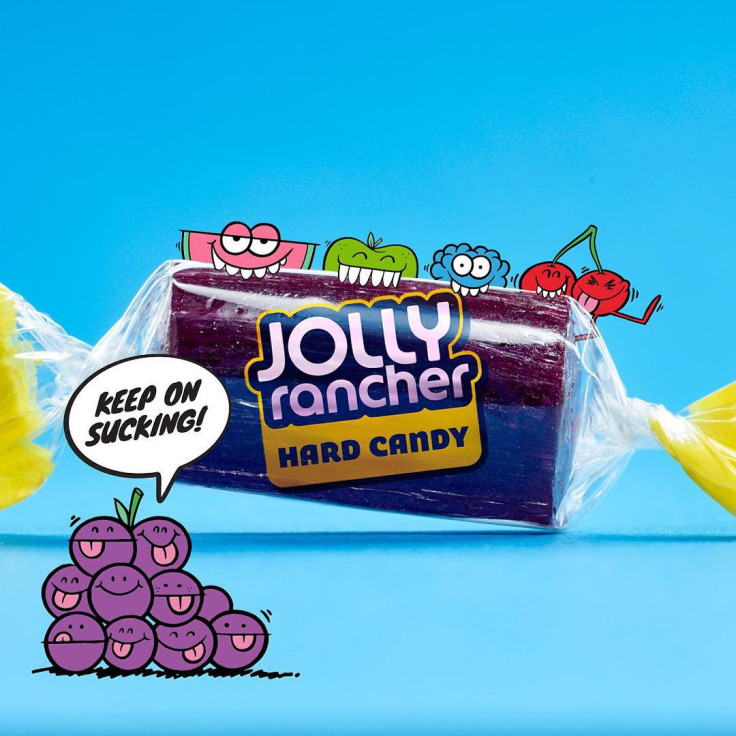Banned in Britain, Still on US Shelves: Jolly Ranchers Pulled Over 'Cancer‑Causing' Ingredients
Consumer watchdogs sound alarm after certain Jolly Rancher sweets were pulled from UK shelves due to banned additives linked to cancer—yet remain widely sold across the US

Sweet product Jolly Ranchers is being consumed in the US as it meets safety regulations there while UK banned it after health watchdogs detected traces of potentially cancer-causing compounds, leaving consumers perplexed.
Food Standards Agency (FSA) in early June issued a warning that Jolly Rancher products, including hard candies, gummies, Fruity 2‑in‑1 and Berry Gummies contain Mineral Oil Aromatic Hydrocarbons (MOAH) and Mineral Oil Saturated Hydrocarbons (MOSH) that have been classified as genotoxic carcinogens, which can damage DNA and elevate cancer risk with long-term, high-level exposure, especially in children and heavy consumers.
Retailers were immediately instructed to cease sales, remove stock from shelves, and initiate recalls as FSA emphasised: 'Consumption of the affected sweets is of toxicological concern, especially in younger age groups.'
What Are MOAH and MOSH—and Why the Concern?
MOAH and MOSH are derived from mineral oil, often used inadvertently during machinery cleaning or packaging processes, and have a tendency to cling to fatty foods like sweets .
- MOAH contains compounds capable of damaging DNA and potentially increasing cancer risk.
- MOSH, though less understood, can accumulate in body tissue and may lead to health issues.
Announcing the ban, the FSA stressed that even small amounts consumed over time are considered a risk, particularly for frequent buyers and children.
US vs UK: A Divide in Food Safety Standards
What's allowed in American candy—like Jolly Ranchers—doesn't necessarily pass muster in the UK.
Trading Standards officers across Staffordshire, Warwickshire, Manchester and Newcastle have repeatedly seized illegal imports containing these banned ingredients.
The BBC reported that Jolly Ranchers seized in Staffordshire contained mineral oil linked to cancer risk. Similar finds have been made in Staffordshire shops 'every day'—evidence of widespread import despite the ban.
Parents and Regulators Raise the Alarm
The Chartered Trading Standards Institute (CTSI) warned that the trend is fuelled by TikTok candy hauls, with colourful packaging targeting children. A CTSI official said:
'Social media has amplified the demand for American sweets... retailers must take responsibility to ensure compliance.'
Similarly, the FSA's Head of Additives, Adam Hardgrave, urged: 'avoid buying... if they look slightly different..., state the weight in non-UK measurements or if they have ingredients listed using American terms.'
What Consumers Should Do Now
If any American sweets bought, consumer must follow the below guildelines:
- Don't eat them—and dispose of existing stock.
- Report the product to your local Trading Standards or environmental health department.
- Check labels for clues: US packaging often shows 'Nutrition Facts' instead of the UK 'Nutrition Information', imperial weights (oz/fl oz), and unfamiliar additives.
Despite the warning, experts emphasise that occasional consumption is unlikely to pose immediate danger, but regular, long-term intake is unsafe.
Broader Conversation About Food Safety
This issue spotlights a broader debate: Should UK food standards be aligned more closely with US regulations, or remain stricter to prioritise public health?
Currently, the UK prohibits additives like brominated vegetable oil, mineral oil, E127 (Red 3), calcium disodium EDTA, and various artificial dyes in food and drink.
Ultimately, while nostalgia for American sweets is understandable, the divergent standards are a reminder that what's legal in the US isn't always safe elsewhere. The FSA advises checking labels, avoiding suspect imports, and staying alert.
It's about protecting children—and everyone—from hidden hazards in seemingly innocent treats.
© Copyright IBTimes 2025. All rights reserved.





















